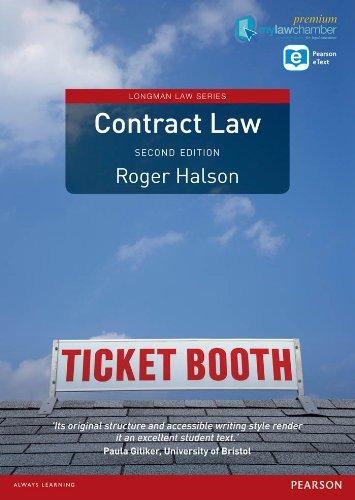Question
Read the provided sections from the New York Times article on the Dobbs v. Jackson Women's Health Organization (2021) Supreme Court oral arguments from this
- Read the provided sections from the New York Times article on the Dobbs v. Jackson Women's Health Organization (2021) Supreme Court oral arguments from this month.
- Answer the questions at the end.
- https://www.nytimes.com/live/2021/12/01/us/abortion-mississippi-supreme-court#abortion-supreme-court-mississippi-law
Supreme Court Appears Open to Upholding Mississippi Abortion Restriction
After two hours of sometimes tense exchanges in one of the most significant abortion cases in years, the court appeared poised to uphold the state law, which bans abortions after 15 weeks of pregnancy.
Dec. 1, 2021, 12:19 p.m. ET
ByAdam Liptak
The Supreme Court seems poised to uphold Mississippi's abortion law.
The Supreme Court seemed poised on Wednesday to uphold a Mississippi law that bans abortions after 15 weeks of pregnancy, based on sometimes tense and heated questioning at a momentous argument in the most important abortion case in decades.
Such a ruling would be flatly at odds with what the court has said was the central holding of Roe v. Wade, the 1973 decision that established a constitutional right to abortion and prohibited states from banning the procedure before fetal viability, or around 23 weeks.
But the court's six-member conservative majority seemed divided about whether to stop at 15 weeks, for now at least, or whether to overrule Roe entirely, allowing states to ban abortions at any time or entirely.
Chief Justice John G. Roberts Jr. was the leading voice on the right for a narrow decision. "The thing that is at issue before us today is 15 weeks," he said.
He repeatedly questioned whether the viability line was crucial, saying that Justice Harry A. Blackmun, the author of the majority opinion in Roe, had called the line arbitrary in his private papers. Chief Justice Roberts added that much of the rest of the world has similar limits.
Julie Rikelman, a lawyer for the abortion clinic challenging the Mississippi law, disputed that, saying that limits in many other countries are subject to significant exceptions.
Other conservative justices indicated that they were not interested in the chief justice's intermediate approach. Justice Samuel A. Alito Jr. said "the only real options we have" are to reaffirm Roe or to overrule it.
Assuming the three most conservative members of the court Justices Alito, Clarence Thomas and Neil M. Gorsuch are prepared to overrule Roe entirely, Chief Justice Roberts would need to attract at least two votes for a narrower opinion, one upholding the Mississippi law but not overruling Roe in so many words, to be controlling. But the most likely candidates, Justices Brett M. Kavanaugh and Amy Coney Barrett, said little to suggest that they were inclined toward that narrower approach.
The court's three liberal members Justices Stephen G. Breyer, Elena Kagan and Sonia Sotomayor were adamant that Roe should stand.
Should Roe be overturned, at least 20 states will immediately or in short order make almost all abortions unlawful, forcing women who can afford it to travel long distances to obtain the procedure.
Chief Justice Roberts expressed frustration with Mississippi's litigation strategy. In the state'spetition seeking Supreme Court review, officials told the justices that "the questions presented in this petition do not require the court to overturn Roe or Casey," though lawyers for the state did raise the possibility in a footnote. Once the court agreed to hear the case, the state shifted its emphasis and began a sustained assault on those precedents.
That amounted to a bait-and-switch, Chief Justice Roberts suggested.
The more liberal justices pressed Scott G. Stewart, Mississippi's solicitor general, on the dangers of overruling a longstanding precedent after changes in the membership of the court.
Justice Breyer quoted from Planned Parenthood v. Casey, the 1992 decision that reaffirmed what it called Roe's core holding, the one prohibiting states from banning abortions before fetal viability: "To overrule under fire in the absence of the most compelling reason to re-examine a watershed decision would subvert the court's legitimacy beyond any serious question."
Justice Sotomayor asked whether the court would "survive the stench" of being considered a political institution, a point echoed by Justice Kagan.
The case, Dobbs v. Jackson Women's Health Organization, No. 19- 1392, concerns a law enacted in 2018 by the Republican-dominated Mississippi Legislature thatbanned abortions if "the probable gestational age of the unborn human" was determined to be more than 15 weeks. The statute, a calculated challenge to Roe, included narrow exceptions for medical emergencies or "a severe fetal abnormality."
____________________________________________________________________________
In a long detailed well-developed response, reflect on what you read in the above article about theDobbscase, covering the following points:
- Describe the effects theDobbs case can have on the precedents established inRoe v. Wade(1972) andCasey v. Planned Parenthood(1992).
- Compare the perspectives of the different groups of justices (e.g. conservative, liberal) on this case and the precedents inRoeandCasey.Use specific justices' names.
- What do you think Justices Sotomayor and Kagan meant by their concern of"whether the court would 'survive the stench' of being considered a political institution"?Explaintheir concern regarding the Dobbs case in your own words.
Step by Step Solution
There are 3 Steps involved in it
Step: 1

Get Instant Access to Expert-Tailored Solutions
See step-by-step solutions with expert insights and AI powered tools for academic success
Step: 2

Step: 3

Ace Your Homework with AI
Get the answers you need in no time with our AI-driven, step-by-step assistance
Get Started


